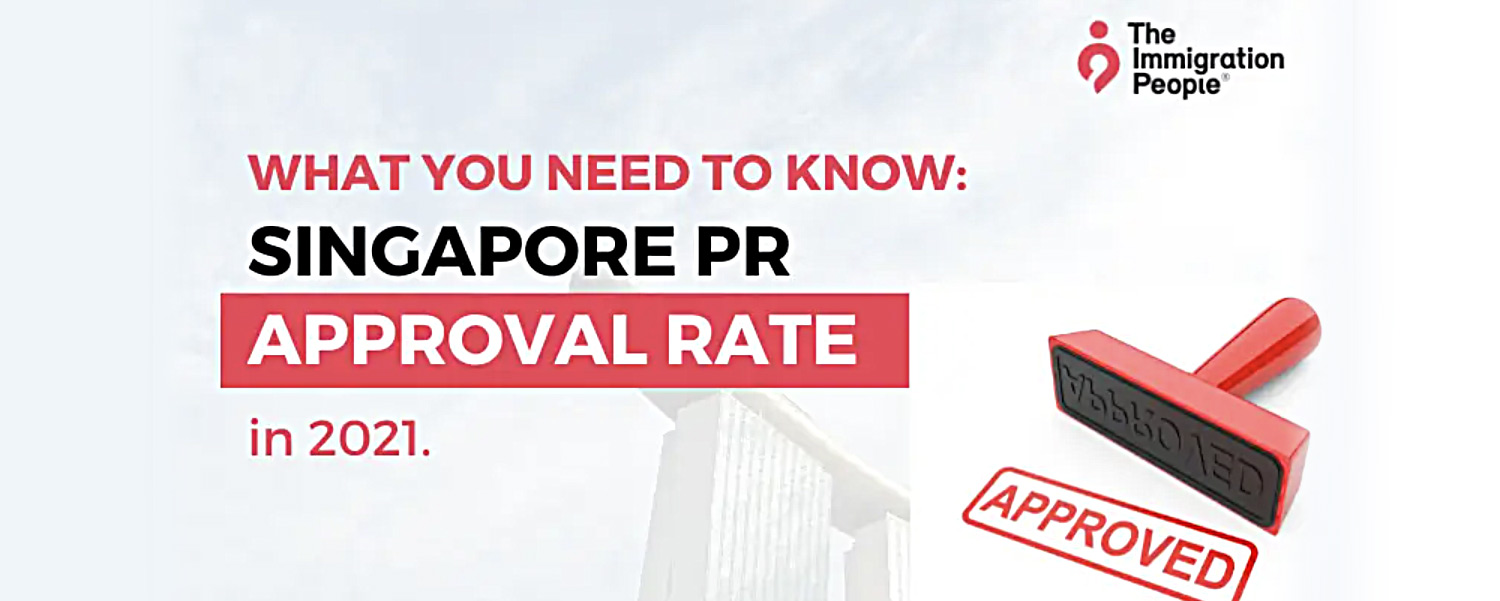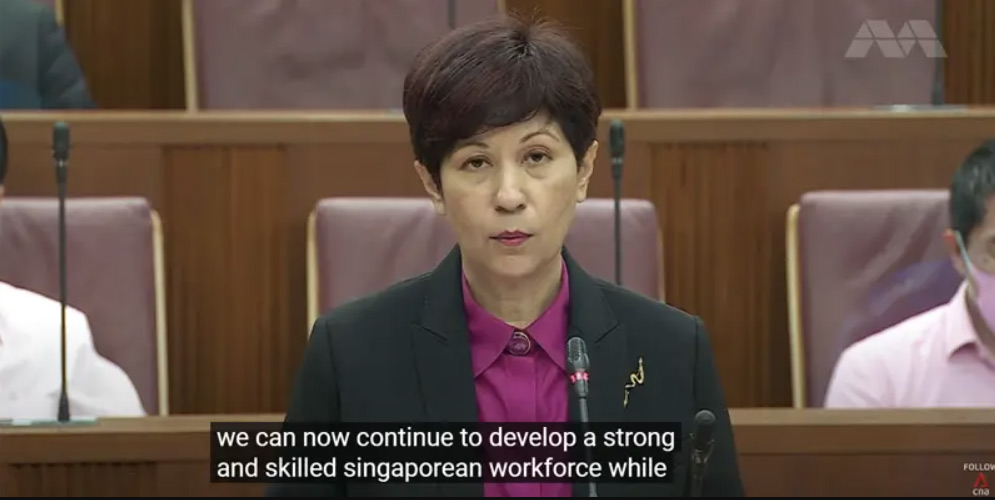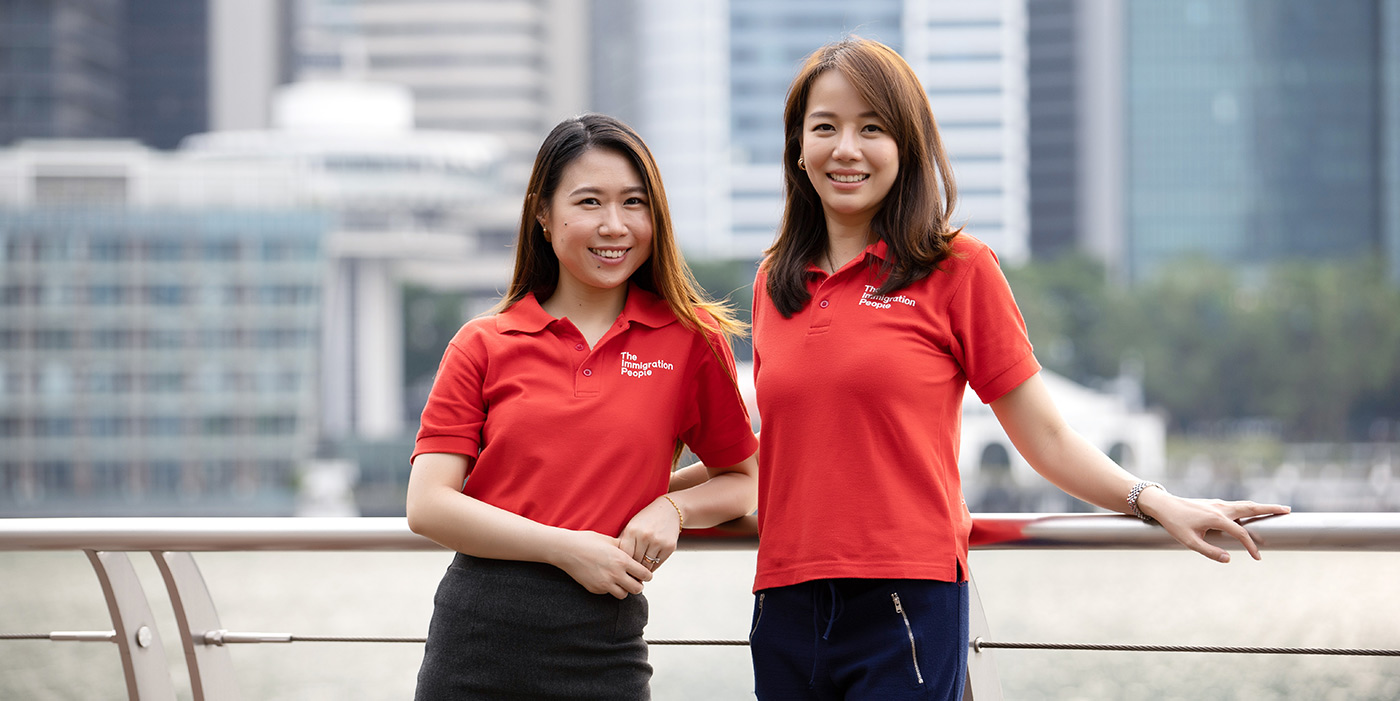Browse through our library of informative resources to stay informed and inspired


2024 was a remarkable year for Singapore Permanent Residency (PR) and Citizenship applicants.
The Singapore government has approved the highest number of PR and Citizenship applications since 2010, with the approval rate reaching an all-time high, mainly due to the Government’s commitment to making Singapore a global hub for talent and business.
Does this mean getting a Singapore PR or Citizenship status will be easier?
Or do the new approval numbers mean the Immigration and Checkpoints Authority (ICA) will be stricter in its evaluation?
Especially if you are an Employment Pass (EP) holder and have been staying in Singapore for a while, read on till the end to find out why YOU must decide to apply for Singapore PR application faster.
One of the most common questions that we get asked is: “What is your PR approval success rate?”
No immigration agencies are supposed to be affiliated with the ICA. Only the ICA can decide on the outcome of your PR application. As professional immigration consultants, we use our in-depth knowledge and experience to assist in maximising the approval chances of our clients.
To understand the success rate of PR applications, we must first understand the Singapore PR Application approval statistics.
As one of the most sought-after countries to migrate to, Singapore’s Permanent Residency application is highly competitive, and the Government has always taken a proactive stance to ensure the country is well-prepared for the influx of foreign talent.
As of December 31, 2024, Singapore’s immigration policies have continued to evolve, reflecting the nation’s commitment to attracting global talent while maintaining social cohesion. The most recent data available provides the following figures for Singapore Permanent Residency (PR) approvals:
| Number of PRs granted (estimated) | |
| Year 2022 | 34,493 |
| Year 2023 | 34,491 |

Singapore has a strict and selective immigration policy aims to ensure only the most qualified individuals are allowed to enter the country, attracting highly skilled professionals who can help drive innovation and economic growth.
The highly selective screening process is designed to protect the security of Singapore citizens and the economy and promote social cohesion. It also ensures that immigrants can integrate into Singaporean society and contribute positively towards its development.
Aside from zero explanations stated in a rejection letter and new adjustments implemented on immigration policies, the majority of the non-citizens in Singapore would find it difficult.
As Singapore is welcoming foreigners with skills to come here, immigration policy changes and maintaining a strict screening process are strategised to ensure a ‘careful balance’ between foreigners and Singapore citizens.
The COMPASS (Complementarity Assessment) Framework, introduced by Singapore’s Ministry of Manpower (MOM), is a pivotal immigration policy change designed to enhance the evaluation of Employment Pass (EP) holders. Fully implemented in 1st September 2023, this points-based system ensures that foreign professionals applying for EPs contribute meaningfully to Singapore’s workforce and align with its economic priorities.
The COMPASS Framework evaluates EP applications based on a combination of individual and firm-related attributes. Its four foundational criteria are as follows:
Salary – The applicant must meet the minimum salary threshold, which is set based on the top third of local salaries for professional roles. For instance, as of 2023, the qualifying salary for EP holders was raised to S$5,000, with S$5,500 for financial services (Ministry of Manpower).
Qualification – The educational qualifications of the applicant must meet certain standards that align with Singapore’s strategic needs.
Diversity – The framework assesses the contribution of the applicant to workforce diversity in terms of skills, background, and experience.
Support for Local Employment – Companies must demonstrate efforts to hire and support local employees alongside foreign talent.
Additionally, applicants can earn bonus points if their skills align with Singapore’s strategic economic priorities, such as in AI, biotechnology, and advanced manufacturing.
Since September 2022, the minimum qualifying salary for EP holders has been adjusted to S$5,000 across most sectors, with a higher threshold of S$5,500 for financial services (Ministry of Manpower). This increase is designed to better align EP holders with the top-tier local workforce. As a result, companies may prefer to hire local professionals instead, especially in sectors where local talent is readily available. Moreover, salary requirements for older applicants increase with age.
With the ongoing implementation of the COMPASS Framework, prospective EP holders will face a more stringent and targeted evaluation process. Companies will be required to hire EP holders who not only fill specific employment gaps but also contribute to Singapore’s long-term growth and development. This shift ensures that foreign talent complements the local workforce while meeting the evolving needs of Singapore’s economy.
Given the increasing competition for EP applications and higher salary requirements, applicants should be proactive in aligning their profiles with the framework’s criteria. Moreover, with immigration policies growing more selective, it is important for professionals to demonstrate a clear commitment to contributing to Singapore’s society and workforce.
For more insights into the COMPASS Framework, applicants can visit the official MOM website (source) and use their Self-Assessment Tool to assess their eligibility. Alternatively, you can watch the video below to gain a deeper understanding of the new COMPASS system:
For those considering applying for Singapore permanent residency via the PTS scheme, your economic contribution is a prominent key factor in your PR application.
Singapore PR applicants who can fill in the gap in in-demand industries are often the favourite choice of the ICA.
Some examples of the booming industries that could potentially help you increase your chances of approval:
In 2021, the number of approved Singapore PR applications reached a record high despite the pandemic and lockdown period.
The number indicates that the demand for foreign professionals remains strong, and the Government recognises the value and contributions to Singapore’s growing economy.
With the right qualifications and skill set, it is possible to achieve your dream of becoming a Singapore PR or citizen and reap all the benefits that come with it.
Singapore is currently facing a demographic challenge that has continued to impact its population growth and labor market.
The nation’s low birth rates and aging population are becoming significant factors motivating the government to encourage eligible foreigners to apply for Permanent Residency (PR).
As of 2022, Singapore’s fertility rate hit an all-time low of 1.05, one of the lowest in the world, a trend exacerbated by more couples delaying marriages and starting families.

Singapore population growth rate | WORLD POPULATION REVIEW
This demographic challenge is reflected in the broader economic context, as Singapore’s population growth rate has fluctuated over the years.
The growth rate has been steadily declining since the 1990s, with a sharp dip occurring around 2020. This is evident from the chart titled above “Singapore Growth Rate,” which shows a significant peak in the growth rate during the late 1960s and early 1970s, followed by a decline starting in the early 1980s and continuing into the 2020s.
The chart projects that this decline may persist through the 2030s, which places additional pressure on the government to rely on immigration to meet its labor demands.
Immigration plays a crucial role in Singapore’s strategy to sustain its economic growth. Given the constraints of an aging population and a slow-growing domestic workforce, the government is increasingly focused on attracting foreign talent, particularly those willing to contribute to the nation’s workforce and potentially start families.
Applicants who show a commitment to integrating into Singapore’s society and contributing to the population’s growth are likely to have stronger profiles, improving their chances of PR approval.
Despite strict immigration policies, this combination of low birth rates, an aging population, and the need for skilled labor underscores the importance of immigration as a key driver of Singapore’s economic sustainability.
The government is expected to continue adjusting its policies to balance the needs of both Singaporeans and the foreign talent required to ensure long-term prosperity.
The Government has been encouraging Singaporean and Permanent Resident couples to start families. For years, the Singapore government has launched campaigns to raise awareness about the downsides of an ageing population.
To tackle the matter at hand, the Government has three strategies:

Minister Indranee Rajah’s speech in Budget 2022 | CNA
![]() .. We can now continue to develop a strong and skilled Singaporean workforce while enabling employers to meet genuine manpower needs by hiring foreigners with relevant skills to complement our local workforce through increases in the minimum qualifying salaries for work passes and the compass points-based framework.”
.. We can now continue to develop a strong and skilled Singaporean workforce while enabling employers to meet genuine manpower needs by hiring foreigners with relevant skills to complement our local workforce through increases in the minimum qualifying salaries for work passes and the compass points-based framework.”
– Minister Indranee Rajah during the Parliamentary debate 2022.
As you can see, for our economic needs to evolve, we need to balance the talent of Singapore citizens with talent from overseas who bring valuable skills, networks, and expertise.
So, is Singapore still looking to retain skilled foreign professionals? Yes.
If your profile is ready, you can calculate your Singapore PR or Singapore Citizenship chances with our E-Preliminary Profile Analysis (EPPA).
The increase in PR and Citizenship approvals in 2023 is expected to continue attracting skilled foreign talent to Singapore, further contributing to the country’s economic growth.
In total, 34,491 new PRs and 23,472 new citizenships were granted in 2023, reflecting the country’s ongoing commitment to fostering a dynamic, diverse population that brings fresh perspectives to its businesses and society.
This influx of skilled professionals will help Singapore remain a vibrant city, enhancing the quality of life for its citizens and creating a thriving, multicultural workforce. As Singapore becomes increasingly competitive, it is essential to act quickly and apply for PR before changes in immigration policies could affect your future opportunities.
To avoid being impacted by the ever-evolving work pass regulations, we recommend applying for Singapore PR within one to two years before your Employment Pass expires. A well-prepared PR application typically takes three to four months to complete, so early preparation is key.

Founders and managing directors of The Immigration People, Elena Kwa and Kay Cheong
With over 25 years of collective experience in the Singapore immigration industry, we have a wealth of knowledge to guide work pass holders to a more seamless application process and secure their Singapore PR status!
Gaining the coveted status of Singapore permanent residency is achievable with the right immigration partner. Whether online or in-person, schedule your complimentary one-on-one consultation for an initial profile analysis with us today.
Any foreign workers working in Singapore on a work pass (excluding Work Permit) may apply to be a Singapore Permanent Resident.
Eligibility of Singapore PR under PTS scheme:
The ICA will never disclose the reasons for rejecting your Singapore PR application.
There are many possible reasons for rejection. Commonly, there are four reasons for Singapore PR rejection. They are:
The processing time of a Singapore PR application will take at least four to six months.
However, the outcome of an individual application status may also take longer than six months as each case is unique. Some applicants might even have to wait more than a year for their PR application results.
The chances of getting PR in Singapore are high, especially with the increased approval rate in 2021.
With a highly skilled workforce, Singapore is keen to attract more foreign talent and individuals dedicated to contributing to the country and its economy. The presence of foreign talent will also contribute to creating a more diverse population that can bring fresh perspectives on how businesses operate in this rapidly changing world.
Having an Employment Pass, Personalised Employment Pass or even ONE pass can give you an advantage for a more robust Singapore PR application. If all mandatory documents needed, such as monthly salary payslips, bank statements, and other relevant documents listed by ICA, are prepared beforehand, your chances of securing a successful PR status can be high.
Please share with us some details about your needs, we will get back to you.